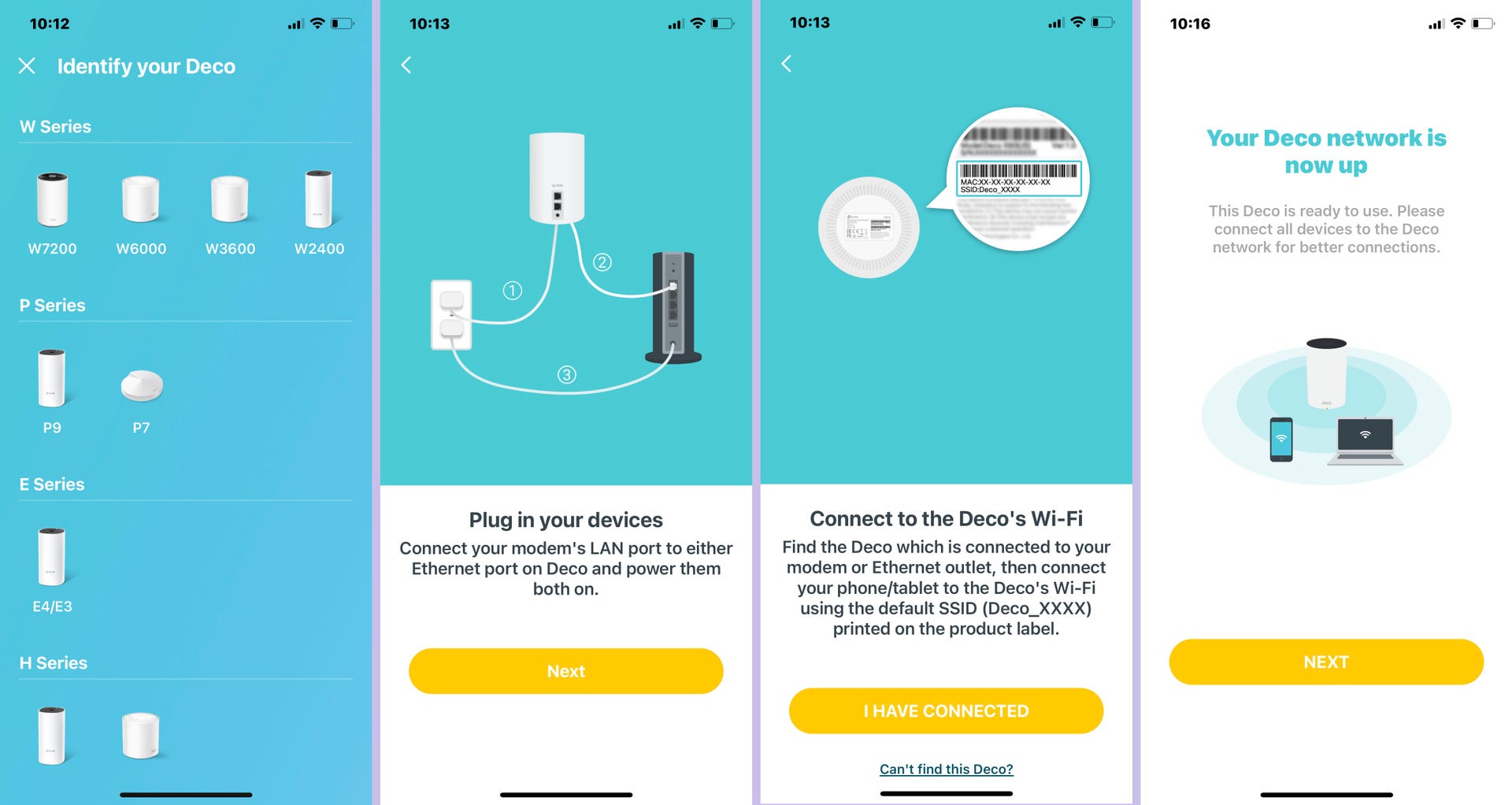What is the best mesh Wi-Fi system overall?
The farther away you get from your router, the weaker your internet connection tends to be, but the best mesh routers can fix this. For most homes, our top pick is the TP-Link Deco W7200, a two-piece mesh system that offers excellent performance for around $200. Many other top-tier mesh routers are worth considering, and we’ve spent years testing them out to find the best systems of the bunch. Check out our roundup of the latest Black Friday deals for the best prices on the mesh routers listed below.
We’ve still got lots of routers and mesh systems we’d like to try out, the majority of which use Wi-Fi 6 technology, promising better performance and faster speeds. Shop around and you’ll find mesh routers from Eero, Nest, Netgear Orbi, Linksys and others that support Wi-Fi 6E, which means they can also access a newly unlocked mass of fresh bandwidth in the 6GHz band. In 2024, we’re expecting to see lots of new systems that support Wi-Fi 7, which promises to make even better use of that 6GHz band for smoother, faster connections. A few of those systems, including the Netgear Orbi 970 series and the Eero Max 7 are already available for purchase (more on those a little further down the post).
Expect regular updates to this post as new Wi-Fi mesh routers like those make it to market. For now, here are our picks for the top-tested systems you should be considering first if you’re shopping for the best mesh Wi-Fi system options available now.
Best mesh routers
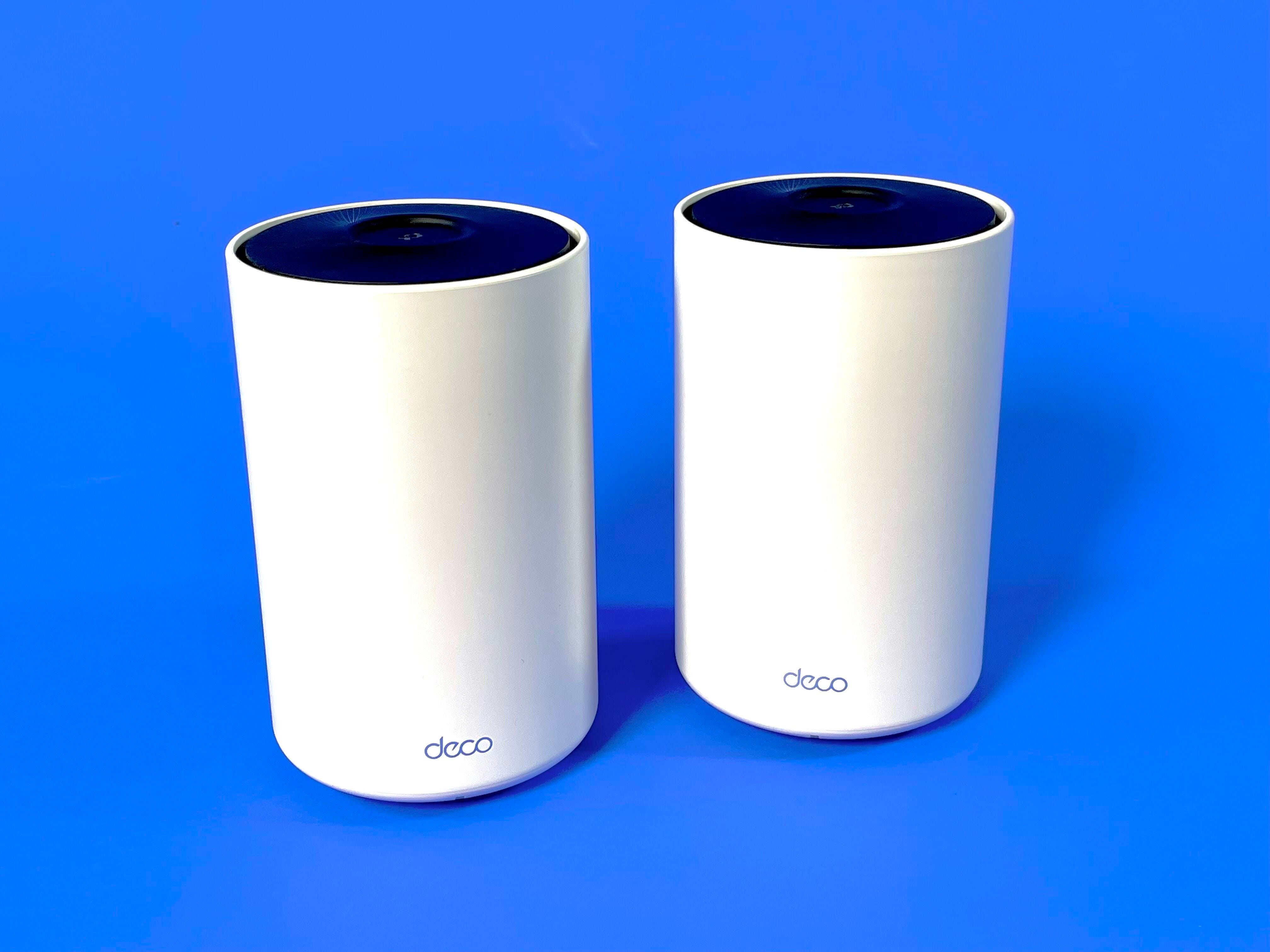
TP-Link Deco W7200
Best overall
Eero was an early pioneer of the mesh networking approach, and in 2019, it got scooped up by Amazon. Then, in 2020, we got two new versions of the Eero mesh router: the Eero 6 and Eero Pro 6, both of which add support for — you guessed it — Wi-Fi 6.
I liked the Eero Pro 6 as an upgrade pick, but the standard Eero 6 wasn’t quite strong enough for me to recommend it. Flash forward to the release of the Eero 6 Plus. With a list price of $195 for a three-pack, it offers the same strong pitch as the Eero 6 — a relatively affordable and easy-to-use three-piece Wi-Fi 6 mesh setup, complete with a built-in Zigbee radio for connecting things like lights and locks with your network. Best of all, with a faster AX3000 design (up from AX1800 with the Eero 6) and support for full-width, 160MHz channels (up from 80MHz), the performance is significantly improved.
In my at-home tests, the Eero 6 Plus returned average download speeds that were in the top 10 of the 30 or so mesh routers I’ve reviewed here — and none of the systems that outperformed it offer as good a value. Its upload speeds were strong as well, and it works great with previous-gen, Wi-Fi 5 client devices, too — that’s important because gadgets like those still comprise the majority of Wi-Fi devices in our homes. With three mesh devices for $195 and a range of up to 4,500 square feet, it’s an excellent pick for large homes, where that additional extender will come in handy.
…Read more
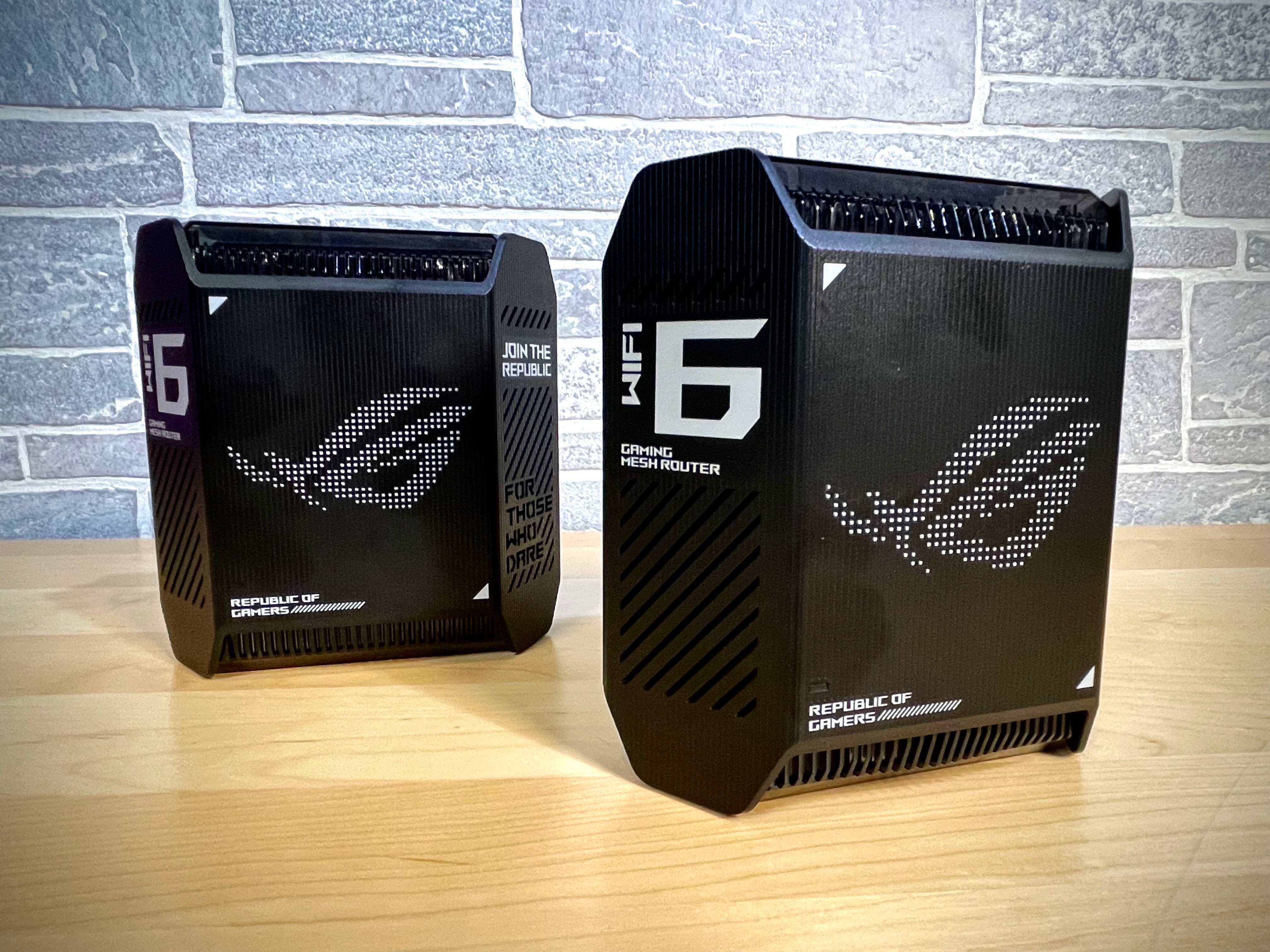
Asus ROG Rapture GT6
Best performance
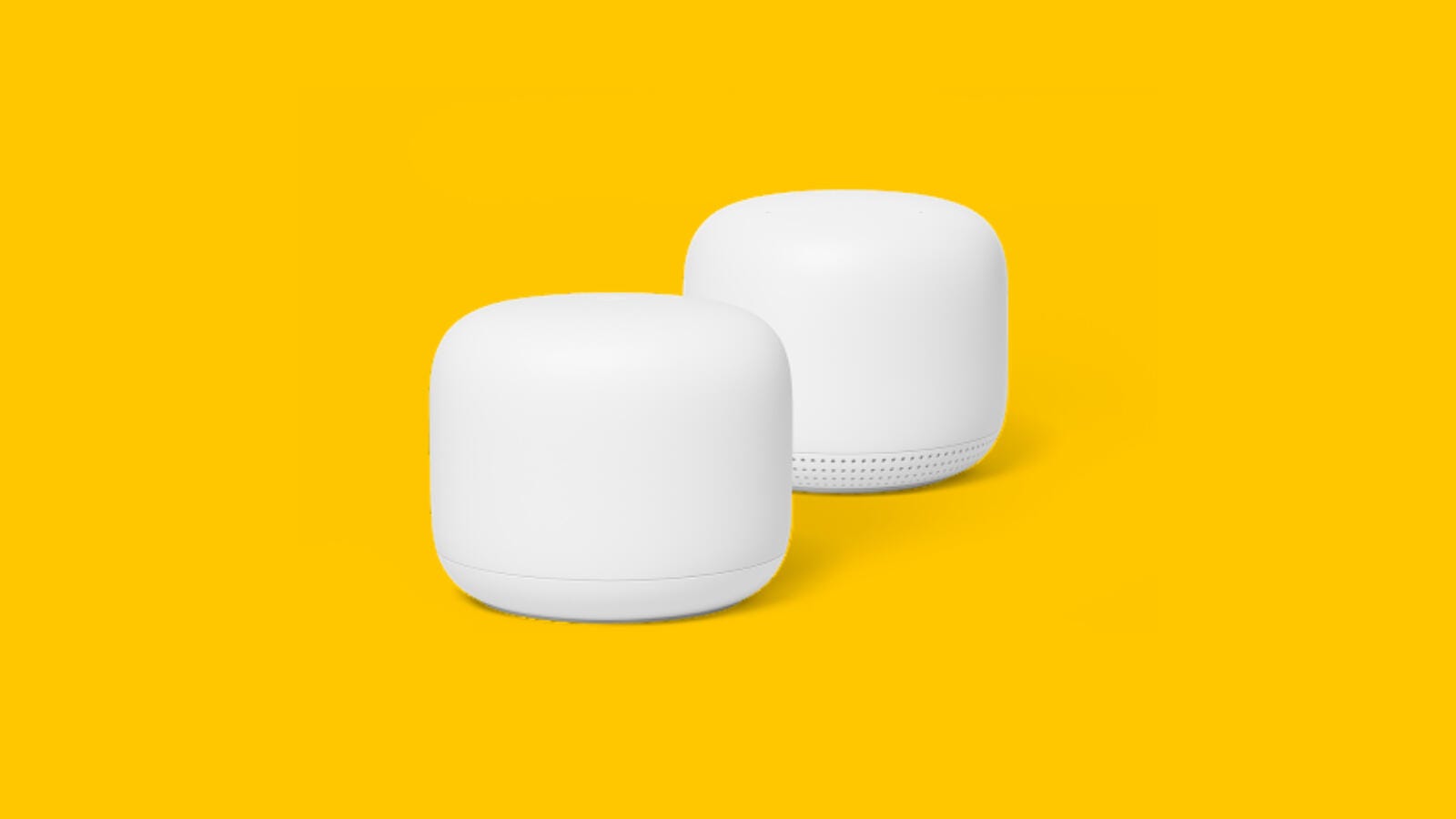
Nest Wifi
A solid Wi-Fi 5 system
(but don’t spend more than $200)
Several years ago, Google Wifi became a breakout hit thanks to its easy setup and its ability to spread a fast, reliable Wi-Fi connection throughout your home for all of your connected devices. Then, there was Nest Wifi, a second-gen follow-up that adds in faster internet speeds and a better-looking design, plus Google Assistant smart speakers built into each satellite extender. It was an immediate standout in our tests, and our top-recommended mesh router prior to the arrival of Wi-Fi 6.
There’s now a new, third-gen follow-up called Nest Wifi Pro that adds support for Wi-Fi 6E. That system failed to wow us, and in the meantime, the second-gen Nest Wifi is still a solid mesh router that frequently costs a lot less than before.
On average, the Nest Wifi notched the fastest top speeds that I saw in my tests from any Wi-Fi 5 mesh router (and faster speeds than some of the Wi-Fi 6 systems I’ve tested, too). It also aced our mesh tests, never once dropping my connection as I moved about my home running speed tests. I never caught it routing my connection through the extender when connecting directly to the router was faster, either, which is a common pitfall for mesh connections.
Make no mistake, the lack of Wi-Fi 6 support means that the second-gen Nest Wifi is a somewhat dated system at this point, but it does include support for modern features like WPA3 security, device grouping and prioritization, and 4×4 MU-MIMO connections that offer faster aggregate speeds for devices like the MacBook Pro that can use multiple Wi-Fi antennas at once. It’s also fully backward-compatible with previous-gen Google Wifi setups, which is a smart touch. All of it is easy to set up, easy to use and easy to rely on. Among dual-band mesh routers, I’d much rather have a top-of-the-line Wi-Fi 5 system than an entry-level Wi-Fi 6 system, and even among the new competition, the Nest Wifi mesh router fits that bill.
…Read more
The AC1200 version of Netgear Orbi is a smaller, simpler version of the popular mesh system. It doesn’t offer blazing-fast speeds, but the performance is consistent, and it costs a whole lot less than other, fancier Orbi builds.
Netgear brought the cost down by sticking with Wi-Fi 5, ditching the built-in Alexa speaker that comes with the Orbi Voice and skipping the tri-band approach and the dedicated 5GHz backhaul band that other Orbi systems use to connect each device in the mesh. I wonder if Netgear missed an opportunity by not branding this system as “Orbi Lite.”
It all makes for a less robust mesh system than other Orbi setups, but I hardly noticed in my tests. Among the Wi-Fi 5 systems I’ve tested, the dual-band Netgear Orbi actually notched the fastest top speeds at close range, it kept up with the Nest and Eero in our real-world speed tests and it offered excellent signal strength in the large-sized CNET Smart Home. Netgear has a great reputation for performance — it received the top overall score in the American Customer Satisfaction Index’s 2023 survey for Wi-Fi equipment.
Netgear’s app isn’t as clean or intuitive as Nest’s or Eero’s, and the network didn’t seem quite as steady as those two as it steered me from band to band in my tests, but those are quibbles at this price. If you just want something affordable — perhaps to tide you over until you’re ready to make the upgrade to Wi-Fi 6 or Wi-Fi 6E — the most budget-friendly Netgear Orbi definitely deserves your consideration. We’ve regularly seen the three-piece system selling for about $100 over the past year or two, so try and score it at that price if you can.
…Read more
CNET editors pick the products and services we write about based on editorial merit. When you buy through our links, we may get a commission. Read more about how we test mesh routers.
When do you need a mesh Wi-Fi system?
Why does mesh Wi-Fi matter? Between working from home, gaming online, video chatting and streaming shows and movies, there are plenty of reasons to want a fast, reliable Wi-Fi signal throughout the entirety of your home.
With multiple devices spread throughout your home, a mesh router is like a team of routers that can relay your wireless traffic back to the modem better than a traditional router. They’re particularly good fits for large or multistory homes where your Wi-Fi network has a lot of ground that it needs to cover — and walls to travel through — but they can also help boost speeds at range in small- or medium-size homes. And in 2024, there are lots of new, next-gen options on the market, so it’s a good time to make the switch.
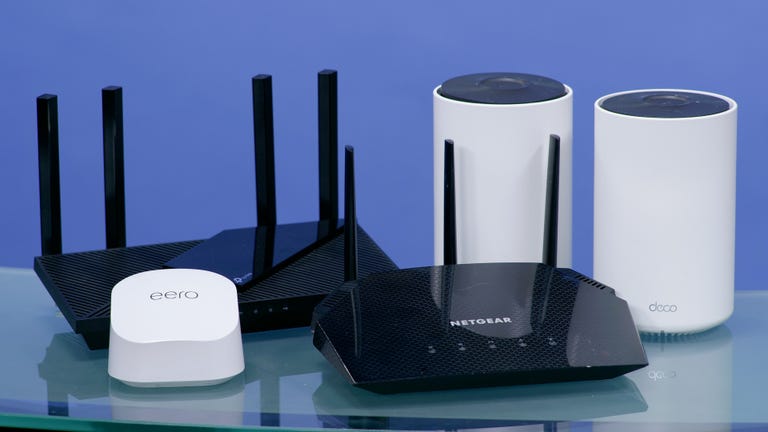
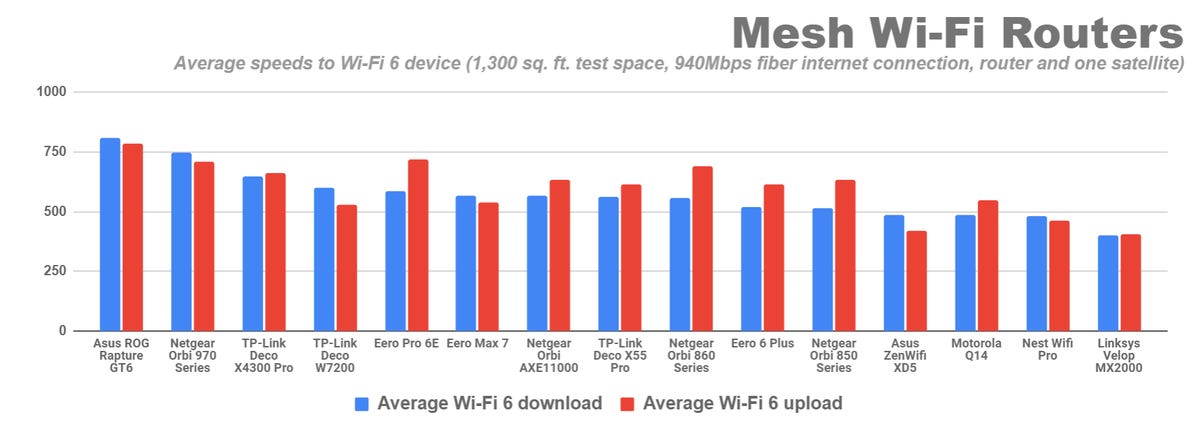
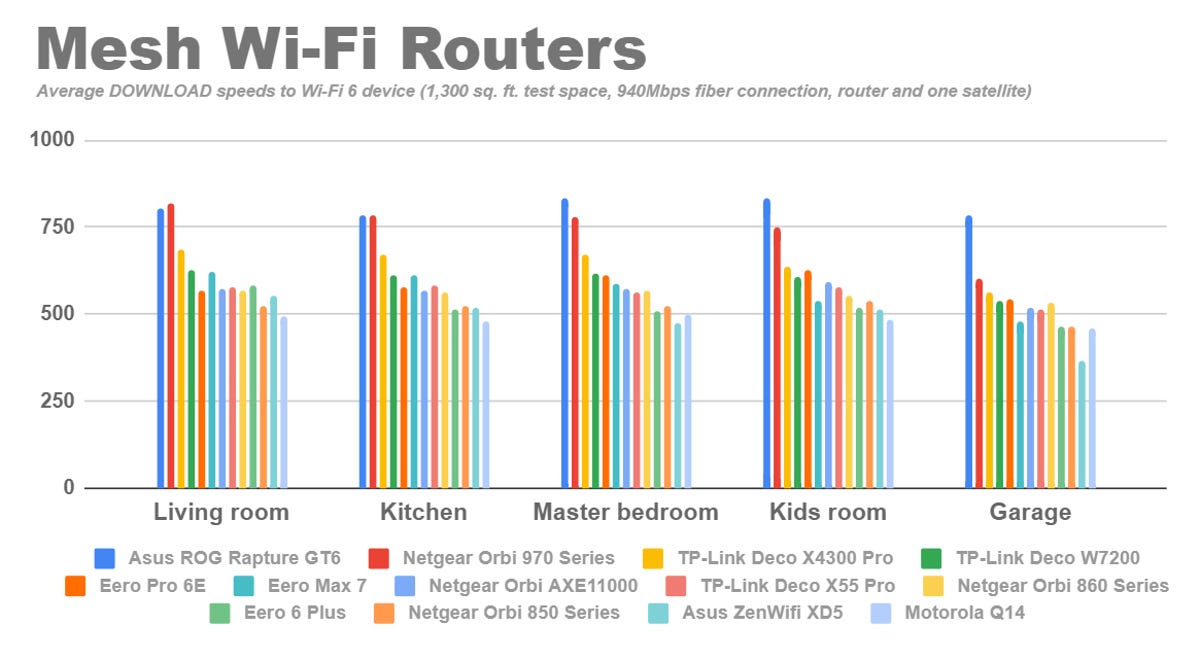
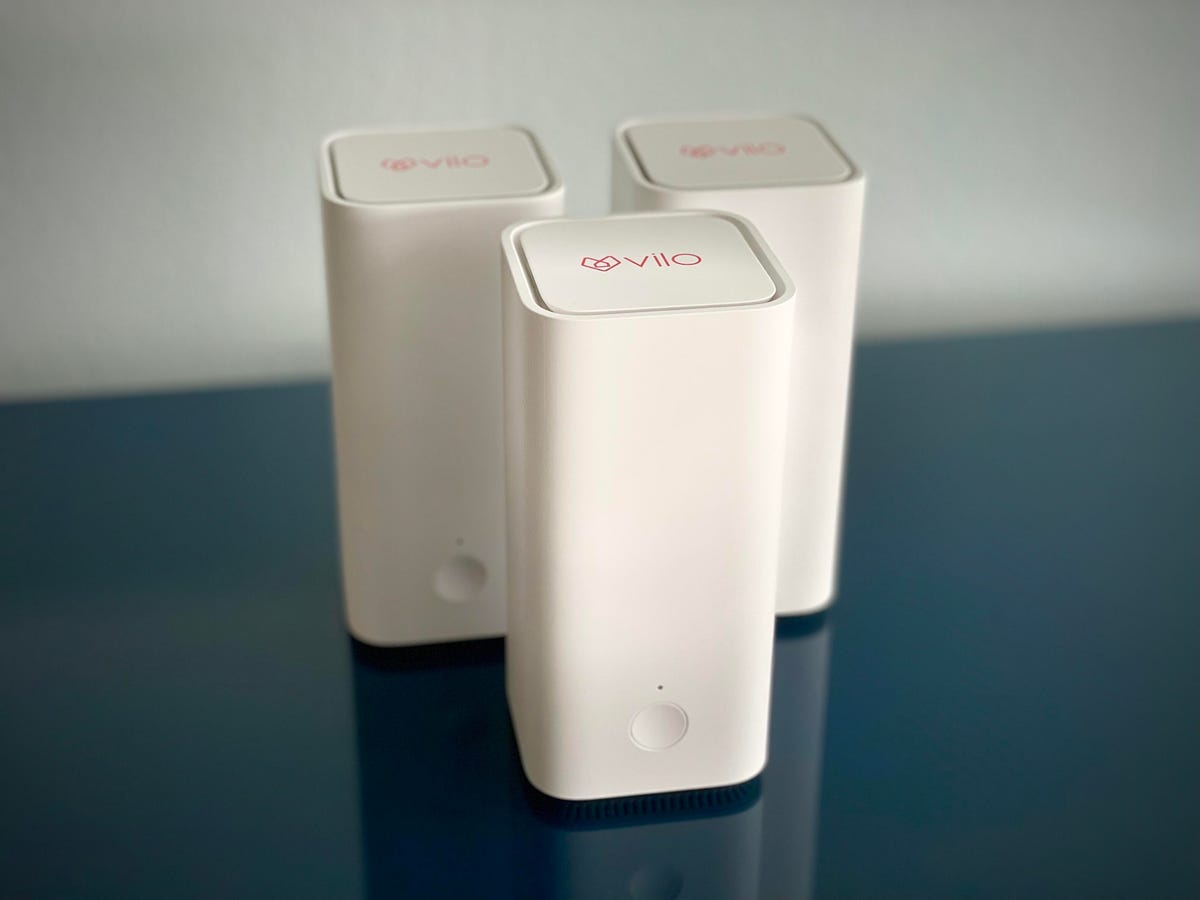
The Vilo mesh router is the slowest I’ve ever tested, but it’s functional, and it only costs $20 per device, plus shipping.
If you’re living with a slow ISP connection and you don’t need Wi-Fi 6, Wi-Fi 6E, or a fancy tri-band build, then there’s nothing wrong with skipping those upgrades and going with something simpler in order to save some money. I’ve tested a number of bargain picks like that in recent years — among them, the AC1200 version of the Netgear Orbi, currently available in a three-pack for under $120, is my top recommendation, with the right balance of performance and value.
If you want to get dirt cheap, you could opt for something like the Vilo system, which costs around $40 per device, plus shipping. It’s the slowest mesh router I’ve ever tested, which wasn’t surprising, but it was still functional and able to maintain workable average download speeds at range.
Other mesh routers we’ve tested
We test lots of routers at CNET HQ — mesh and otherwise — so we’re constantly updating our rundowns of the top systems on the market. I’ll note any new mesh systems we test here as we go, along with a quick summary of my takeaways. Please note that this list includes several systems that were tested at my home during the pandemic, and not in our latest test setup.
Amplifi Alien: An early Wi-Fi 6 mesh system, the Amplifi Alien sports an attractive, gamer-friendly design, complete with touchscreen controls on the main router. At $380 for a single device, it’s a bit overpriced, but the unique build and the focus on advanced features should keep it on the radar for some.
Arris Surfboard Max AX6600: Another high-powered Wi-Fi 6 system with an upright, cylindrical design, the Surfboard Max Pro was able to deliver fast speeds to other Wi-Fi 6 devices in my tests, but the performance was inconsistent with earlier-gen Wi-Fi 5 devices. I also didn’t like the Ethernet jacks on the bottom of the device, which force you to bend your cables to the extreme in order to plug the router in.
Asus ZenWifi XD5: The ZenWifi XD6 is close to the Eero 6 Plus in both specs and price, and at $300 for a three-pack, it’s one of the more affordable Wi-Fi 6 devices you’ll find. Its performance was less consistent across the home. In the garage, I only got 284Mbps upload speeds with the XD5 compared to 494Mbps in the living room, while the Eero 6 Plus returned 706 and 486Mbps for the same price.
Asus ZenWifi XD6: The middle child from the Asus family of Wi-Fi 6 mesh routers, the ZenWifi XD6 is a dual-band mesh system. It won’t give you the tri-band build of the ZenWifi XT8, nor will you get that system’s multi-gig Ethernet jack. Still, the system performed as well as any dual-band mesh router I had ever tested when I first reviewed it, so it isn’t a bad pick by any stretch. At less than $400, it’s a decent price for a high-performance system.
Asus ZenWifi XT8: One of the most powerful ZenWifi systems, the tri-band XT8 performed well in our speed tests, and was among the first mesh routers to include multi-gig Ethernet WAN ports on each device. Available in a two-pack for about $350, the former CNET Innovation Award winner is a reasonable midrange pick in 2024, but it isn’t quite as good a value as the TP-Link Deco W7200 or the Eero 6 Plus.
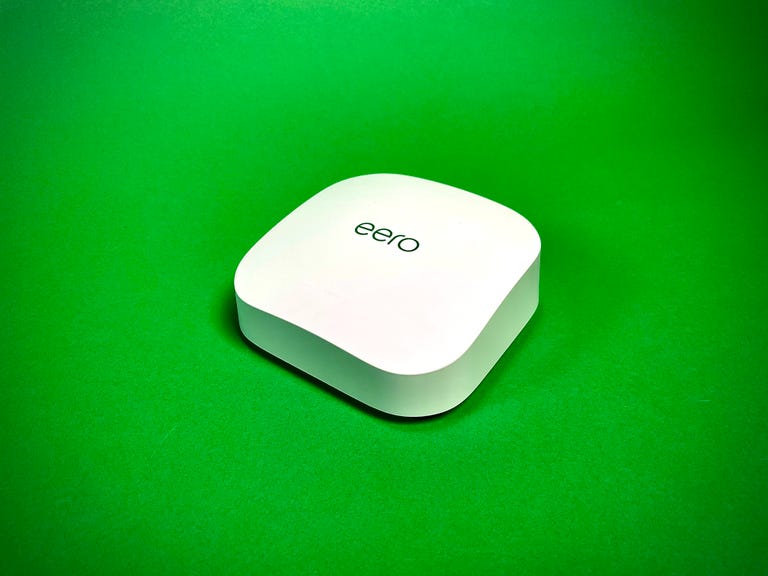
The Eero Pro 6E is a great pick for gigabit networks, but most homes would be just fine sticking with the less expensive Eero 6 Plus.
Eero Pro 6E: The Eero Pro 6E did an excellent job in our speed tests, finishing toward the top in just about every category while also delivering a noticeable speed bump to Wi-Fi 6E devices that can connect over the 6GHz band. The smaller-sized Eero 6 Plus is the better value for most households, but if you’re a Wi-Fi 6E power user with gigabit speeds at home, then upgrading to the Eero Pro 6E merits strong consideration.
Eero Max 7: It’s Amazon’s newest, largest and priciest Eero mesh system, and it adds in support for Wi-Fi 7, the new Wi-Fi standard that promises to build upon Wi-Fi 6E’s foray into the 6GHz band. In our initial speed tests, the Max 7 was capable of hitting blazing fast speeds, but it didn’t sustain those highs throughout testing — in fact, on multiple occasions when I’d connect from the test floor’s garage, the farthest room from the main router, the system would connect me through the extender on the 2.4GHz band, which caused speeds (and the Max 7’s overall position on my leaderboard) to plummet. Worse, the system kept me on 2.4GHz even after I’d returned to the same room as the router. What’s more, when we re-ran our tests with a fancy Wi-Fi 7 test device, speeds were actually slower than what we saw on a Wi-Fi 6 or Wi-Fi 6E device. I’ll continue testing this system to see if the mesh improves, but for now, it’s not a splurge that I’d recommend.
Linksys Velop MX2000: Available in a two-pack for $150, the Linksys Velop MX2000, also known as the Velop Atlas 6, is decent enough as baseline Wi-Fi 6 mesh routers go, but you’ll find better value and faster speeds if you shop around.
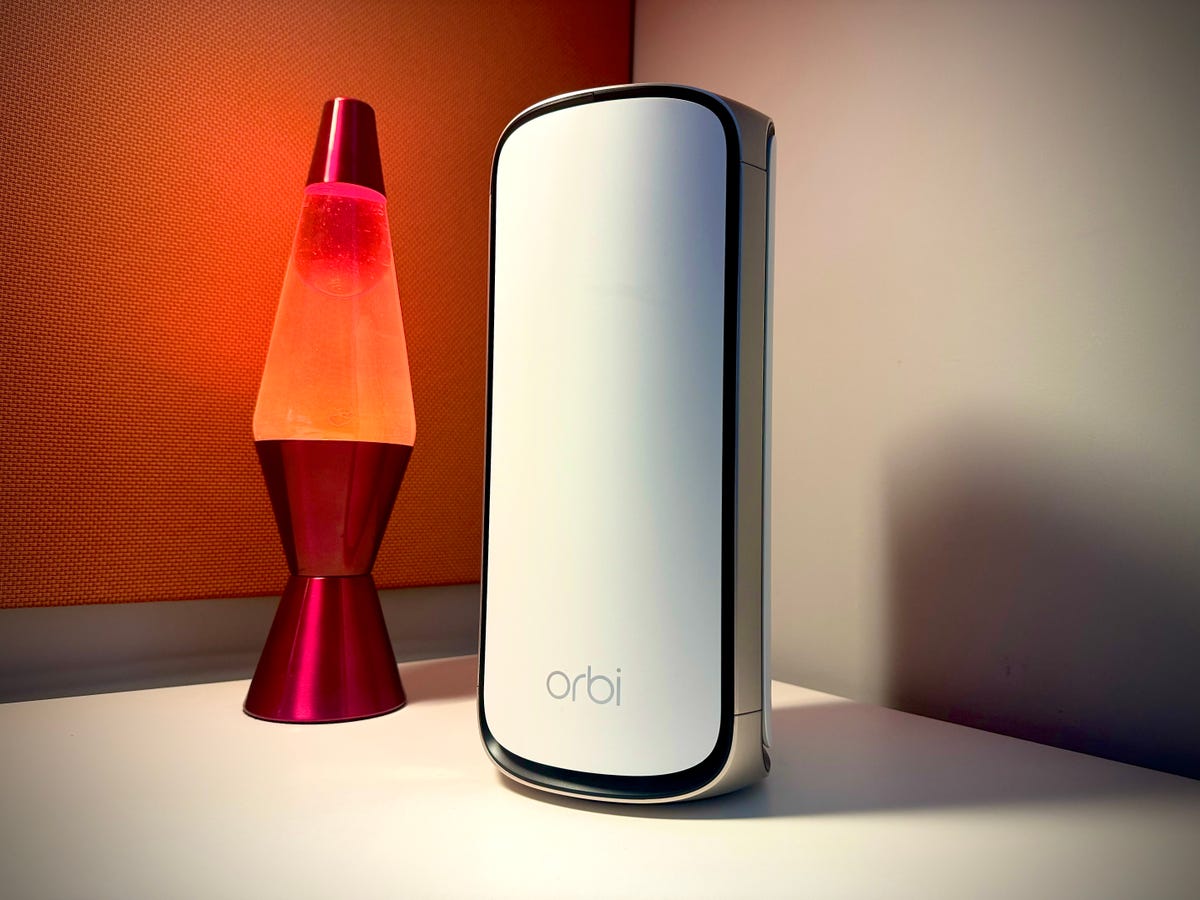
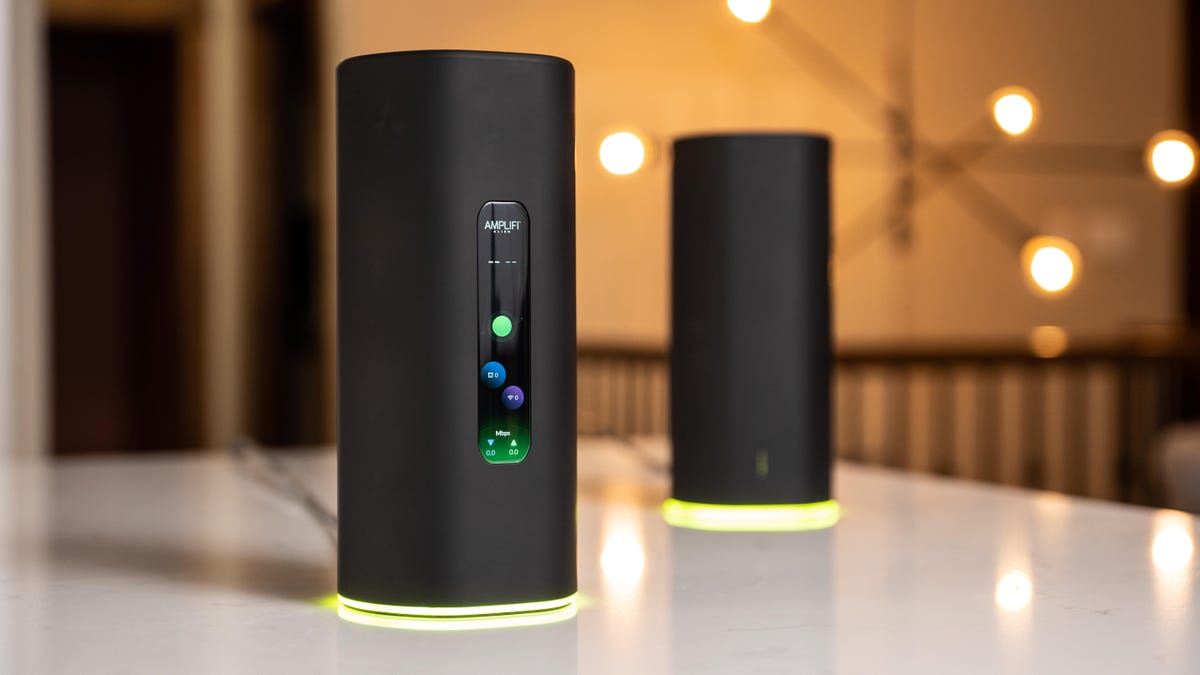
It isn’t a top performer or a value pick, but the Amplifi Alien is a great-looking Wi-Fi 6 mesh router that lets you create a VPN-style connection to your home network when you’re traveling, which is a nice, unique feature.
How to choose a mesh Wi-Fi router
Performance and value are probably the first things you’ll look for as you shop for a mesh router, but there are other factors worth taking into consideration as well. Take features, for instance. Mesh routers typically don’t come with many unique bells and whistles, but there are some standouts. The Amplifi Alien mesh router from Ubiquiti is a good example — apart from a unique-looking build, it features touchscreen controls on the front of each device, along with a feature called Teleport that lets you establish a VPN-style connection to your home network when you’re traveling. That’s a useful trick that lets you make use of your home network’s security capabilities when you’re connecting to a public Wi-Fi network.
Speaking of security, if you’re buying a new router, then it’s worth looking for one that supports the latest encryption standards. Most of the new models released in the last year or two support WPA3 for a stronger defense against things like brute-force hacking attempts; I’d want a model like that if it were me making the upgrade.
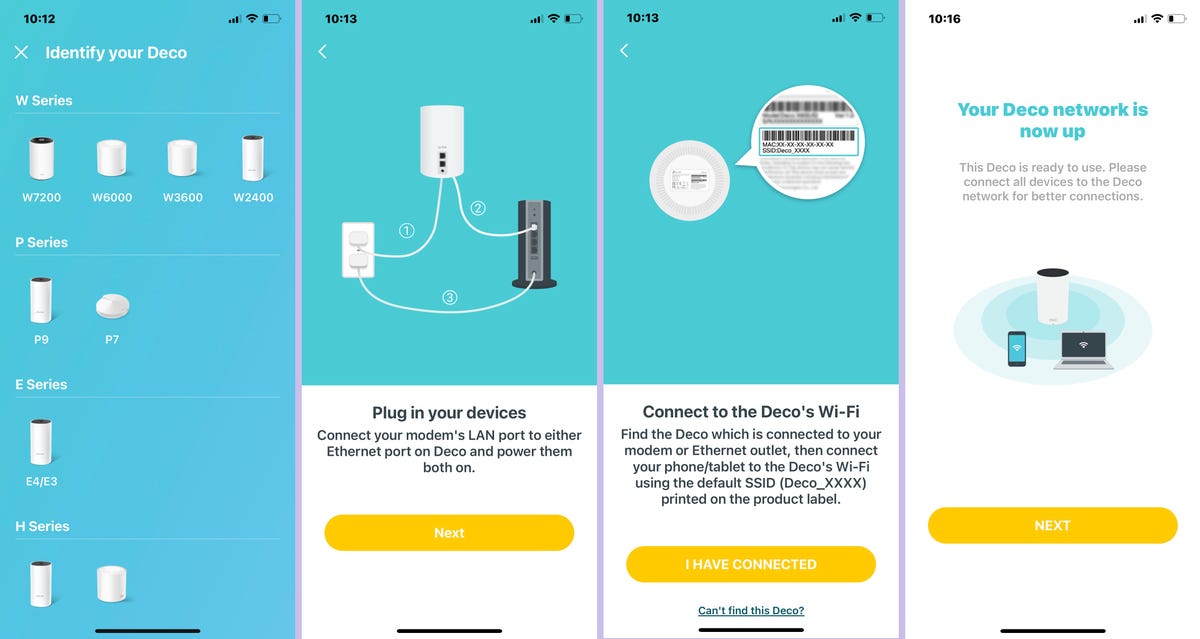
Enlarge Image
